10 Things I Wish You’d Teach Your Kids About Disabilities
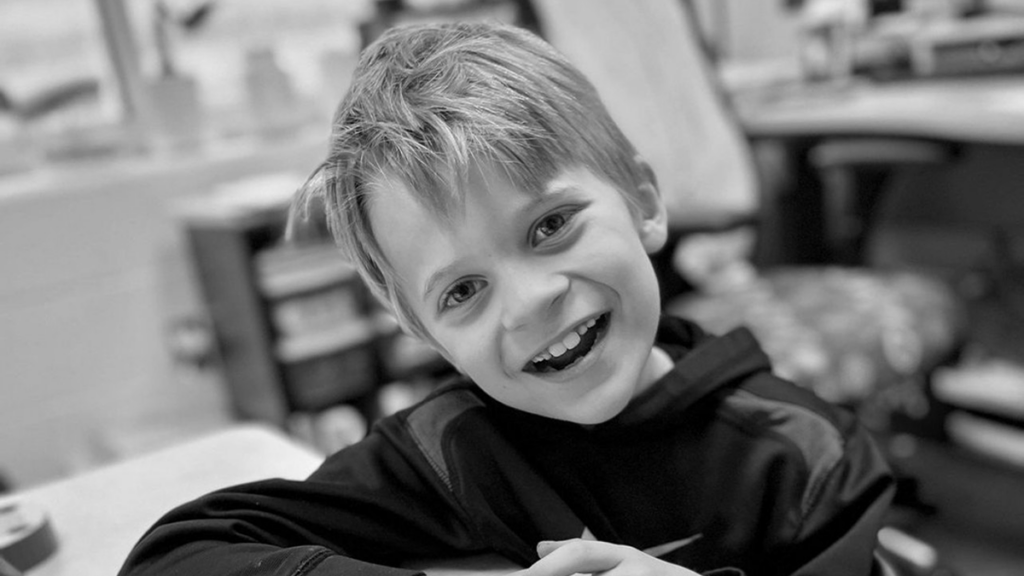
It was a typical Saturday. We were invited to a picnic at my husband, Jeremy’s, Uncle’s house. It was a small affair of just immediate family and us.
We were excited to see everyone. Since the pandemic had had us at home for sometime only going out for basics and to Whit’s therapies and school.
We smoked queso and made a pasta salad. Loaded everyone in the car triple checked to make sure we had everything and off we went.
We got there unloaded, said our hello’s, grabbed food and began hanging out. Whitman likes to “explore” and exploring easily turns into elopement if we aren’t watching.
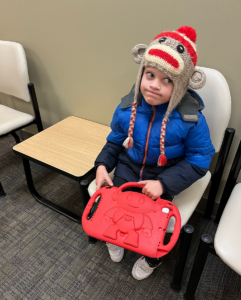
I checked on him and he was looking at the tractor in the garage. Whit loves tractors so he was excited.
One of the cousin’s was in the garage and he said: “He likes tractors like Reese must be an autism thing.” In my head I was thinking: “Oh no I don’t want to have this talk.”
I smiled and said “it’s not, everyone is different”. Just like you may like something that everyone likes. He said: “I guess.” Then he goes: “Why doesn’t he talk?!” I explained that Whitman had apraxia and his tongue and his brain don’t always get along so he uses an iPad, pointing, or sounds to communicate his wants, needs, and opinions.
Then the bomb was dropped, I’m still in shock that people, especially family, are teaching their kids this. The pre-teen said: “Oh so he’s “special” like his dad, at least that’s what my mom says.”

I was thrown off by this because my husband is quirky with an amazing sense of humor. It takes him a while to warm up and when he does you see that he’s the best human.
So I said while Whit’s dad is a special human being he is smarter than anyone and designs cars for a living. I’m dumbfounded that parenthesis “special” is still a thing and that people don’t have talks with their kids about different humans.
They just throw out their judgmental ideals and then wonder why they are getting calls that their child is the bully. I feel like I’m always on the defensive about Whit over basic human rights.
He should be able to look at a tractor without someone assuming it’s because he has autism.
After that encounter I began thinking about what are 10 things that I want parents to teach their kids and themselves about kids with disabilities.
1. They are humans and just want to be treated the same as you.
It always peeves me a little when kids talk down to Whit. He just wants to be accepted.
Just because he doesn’t talk the same way as you do doesn’t mean that his intelligence isn’t there.
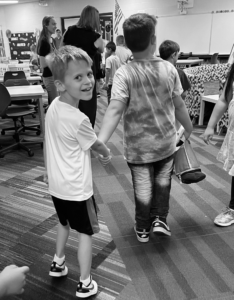 He wants to be included in your conversations, asked about his life, he wants to have fun with you and be included like you would include anyone else.
He wants to be included in your conversations, asked about his life, he wants to have fun with you and be included like you would include anyone else.
Just don’t get down on his level and baby talk to him. He is eight. He can handle the normal dialect. Just talk to him like the person he is.
2. Sometimes Whit needs a break so he walks away.
Whit is an amazing human. He knows when he’s had enough and walks away to self regulate.
Sometimes it looks weird, rude, or as if he’s mad. He’s not, he’s just overwhelmed and knows when to walk away before he has a meltdown.
We’ve worked on this for years so if you see him just walk away give him a minute he’ll be back when he’s ready.
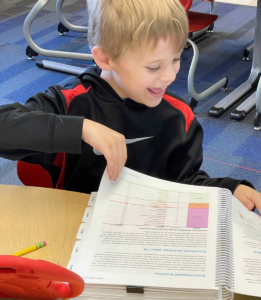
3. Give Whitman time to respond.
In one of Whit’s first speech sessions his speech therapist said that some kids have a delayed reaction time so if you ask something and get no response, count to ten before you ask again. It takes practice.
There are days where I fail and I ask after three Mississippis and it can cause some drama. Normally Whit responds at eight Mississippis. So let him process. I’m sure he’ll answer you in some way.
4. Just because your cousin Sam’s best friends brother’s uncle’s step son is autistic and likes trains, boats, songs, and books. Doesn’t mean it’s because of his autism.
I love seafood. Whit loves seafood. That doesn’t make me autistic I’m just a human who loves seafood and so is Whit. He just has two disorders that make him unique.
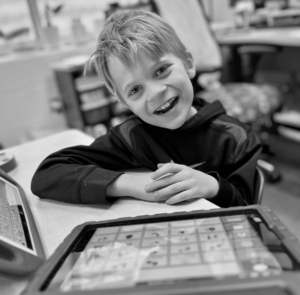
PLEASE STOP teaching your kids that ALL Autistic children like the same things. They don’t. I have a friend whose son loves fantasy and imagination. He’s always doing something really creative.
Whitman is more literal; he loves a book on how it works and he loves to try to make it work with instructions. Both are on the Spectrum but both are different human beings who deserve to be treated as different individuals.
Not clumped together in a “Oh he’s Autistic” group. Start saying to your kids: Oh they have autism it makes them a little unique when processing something but look they like to draw just like you, why don’t you go draw with them.
5. Whitman and other children deserve to be a part of the community.
You looking at me and saying that he’s “special” so he has a pass to not be in the community isn’t correct at all. During the pandemic He couldn’t go into Target, Kroger, or Walmart if he wouldn’t wear a mask.
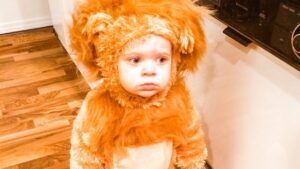
So we worked so hard for him to wear a mask and be a part of the community. Whitman has every right to try.
You telling me at a birthday party that he is “special” in a whisper isn’t changing my mind about him being a part of the community.
Have I mentioned that I’m really over everyone saying special in parenthesis. You are not Dr. Evil and you’re not asking for a million dollars.
6. Saying that at least he’s high functioning isn’t helping anyone.
It’s an insult a lot of the time because you really shouldn’t be putting our kids in high functioning/low functioning categories. You’re not God.
Yes, Whit is high functioning. Yes, he makes eye contact with you, but he has a lot of rules, and a lot to process. When you add Apraxia, anxiety, and other environmental things that stimulate him, things can derail fast.
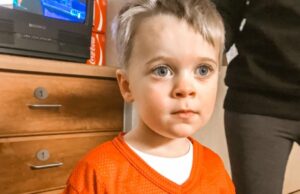
I describe this as his brain giving other parts of his body wedgies and then everything has to stop and get him on track again. High functioning isn’t always a good thing, sometimes it’s harder. I hear this a lot from mom’s with verbal kids. I can’t compare because Whit isn’t verbal yet.
7. One of my dear friends’ speech therapist told her that her son was a typical kid just amplified. I think this describes what we want people to know perfectly.
Everything in their little bodies is amplified and it’s hard. I always imagine it as if you drank a Red Bull, Coffee, and Mountain Dew within a two hour period.
You’re shaking with the caffeine boost and you really don’t know what to do so you go from one thing to the next. You’re nonstop until your body gives in and you crash.
Imagine that being your life everyday.

Some kids don’t sleep because their body is non stop and can’t calm down. Some kids can’t find balance. They’re just typical kids amplified finding their way and that can be hard and exhausting for anyone involved.
8. We hear your snide comments about our kids and blaming us for their behaviors.
If I had a dollar for every time I heard a whisper about Whit I’d be able to pay for therapy out of pocket.
Your two cents on how you take care of your neurotypical kids isn’t helpful because Whitman isn’t neurotypical. Also, autism happens and it’s no one’s fault.
I’ll say it again for the people in the back. AUTISM HAPPENS AND IT’S NO ONE’S FAULT.
So please stop trying to put blame on the parents. Trust me when I say that we stay up blaming ourselves a lot more than you.
Also please know before I walk into any social situation I’m physically sick and on high alert so I can pull the plug and defuse the situation before you start your judgment and blame.
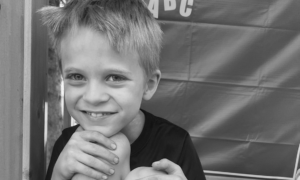
9. We are trying to get our kids to fit into a world that isn’t equipped for them.
Show them and us grace. Imagine going to China without any map or clue of what to expect. The language is different and so are the customs.
Try navigating everything where everyone is telling you your way is wrong and this is the right way in a language you have no clue about. That’s what it’s like for a lot of our kiddos.
They are coming out of their world and into your world. Sometimes they need a little extra time to become adapted.
If that means that they flap and run, they vocal stim, or even go after your precious Johnny’s birthday gifts. Trust me when I say that anyone in our situation is working hard to make sure everyone is happy. Even if we’re exhausted and don’t get to sit down the whole time.
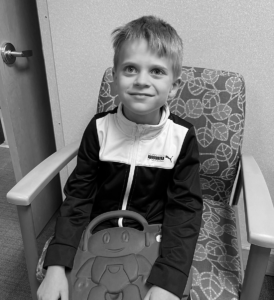
10. Finally, teach your kids about every kind of disability.
The kind you see that involve braces, wheelchairs, and the ones you don’t see like autism, apraxia, or dyslexia.
We are grateful for inclusion so Whitman has an opportunity to be with his peers. But we are also heartbroken and tired when we have to explain to people, especially family, the basics.
At the end of the day we are all human and should be treating everyone as humans.
We need to teach kids from a young age that everyone is different and everyone needs to be included. We all respond differently to stimuli. We comprehend things differently. It doesn’t make anyone less then.
We can’t group people and then assume everyone in that group is the same. Not a single one of them is the same and that’s what makes being a human so amazing.


Thank you very much for taking the time to explain things in so much detail. I want to better understand other people’s journey. I want to know how to make someone feel included. I worked in child care for over 20 years. This information would have been very helpful to me.